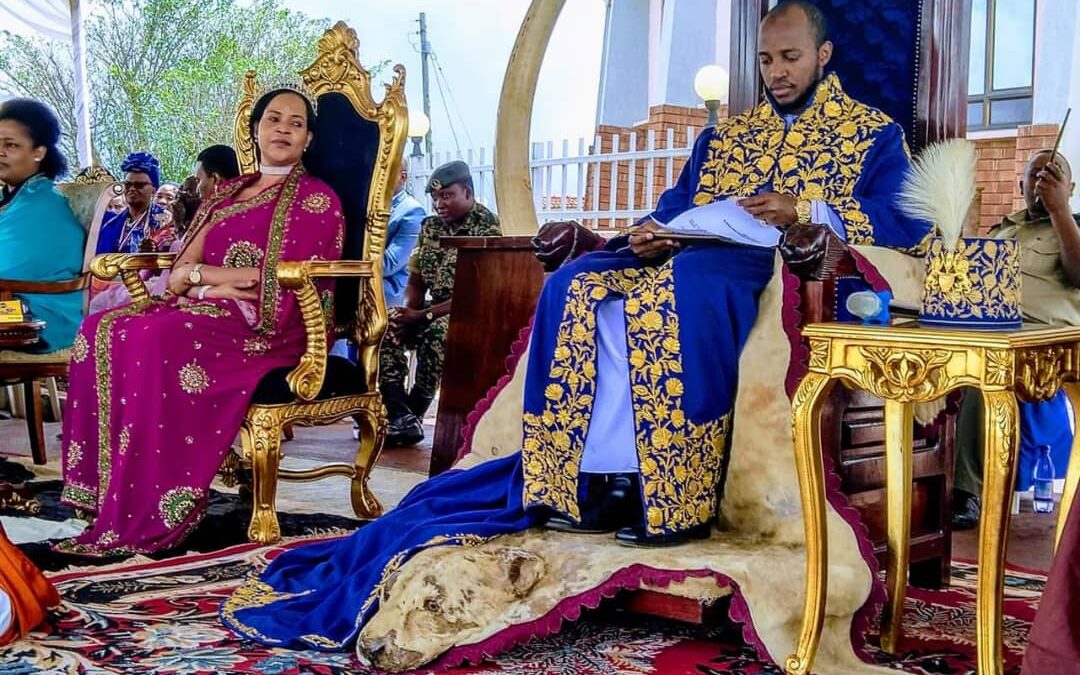Visit Toro Kingdom and King Oyo

Motor Biking in Lake Mburo National Park
September 28, 2023
Rwanda Honeymoon Gorilla Safaris in Africa
September 28, 2023Explore Toro Kingdom and Meet King Oyo – Unveiling the Richness of Toro Kingdom Under Omukama King Oyo
Discovering Toro Kingdom:
Tooro Kingdom, one of Uganda’s five Traditional Kingdoms, offers a fascinating glimpse into rich cultural heritage. The reigning monarch, known as Omukama, holds the title of Omukama Oyo Nyimba Kabamba Iguru Rukidi IV. The people of Tooro Kingdom are affectionately called Batooro, and their language is Rutooro.
Historical Insights:
The roots of Tooro Kingdom trace back to the visionary Omukama Kaboyo Olimi I, the eldest son of Bunyoro’s Omukama Nyamutukura Kyebambe III. Establishing his independent kingdom on the banks of the River Muziizi, he laid the foundation for what would become Tooro Kingdom. However, this fledgling kingdom was absorbed by Bunyoro Kitara in 1876. Like many other kingdoms in Uganda, Tooro’s monarchy faced abolition in 1967 during the tenure of the late President Milton Obote. It was not until 1993, under the leadership of the current president, Yoweri Kaguta Museveni, that Tooro Kingdom was officially reinstated.
Clan System:
Tooro Kingdom boasts around 70 clans, as recognized by the 1999 constitution. However, roughly 20 clans actively participate in the kingdom’s affairs. These clans include Abalisa, Abibiito, Abagweri, Ababbopi, Abasumbi, among others. Batooro take immense pride in their kingdom, each member holding a cherished petty name called Empaako. Young female children are referred to as Abwooli, while young male children answer to Apuuli. Other Empaako names include Abbooki, Akiiki, Araali, Atwooki, and Abbala, each with its own hidden, precious meaning.
Social and Economic Life:
Traditionally, Batooro society was economically distinguished rather than casted. Two main classes, the Bairu and Bahuma, shaped their society. Bairu were known as skilled land cultivators, while Bahuma were recognized as cattle keepers. Together, they produced meat, milk, butter, ghee, and various crops such as millet, bananas, sweet potatoes, sorghum, vegetables, and peas.
Libyan Relationship:
The late Libyan President Muammar Gaddafi shared a remarkable relationship with the Royal Family of Tooro Kingdom. In 2001, King Oyo appointed him as a special advisor. Gaddafi even attended King Oyo’s sixth-anniversary celebration and was declared the defender of Toro Kingdom. Their close bond led to Gaddafi’s financial support for the renovation of the King’s palace.
Marriage Traditions:
Marriage held great significance among Batooro, and unmarried men were often considered incomplete. Traditional marriage arrangements involved parents organizing marriages for their children. A middleman played a pivotal role, conducting research on the girl’s family and behavior before approving the marriage.
Tourist Attractions:
Toro Kingdom is not only rich in culture but also abounds with captivating tourist attractions. Highlights include Kibale Forest National Park, renowned for primate safaris and chimpanzee tracking; the Snow-Capped Mountains of the Moon (Mountain Rwenzori); Semuliki National Park, ideal for nature walks and birdwatching; Amabere Caves, known as the Breasts of Nyinamwiru; Tooro Palace, home to the King; Tooro Botanical Garden; Karambi Royal Tombs, where several Toro Kings and royal family members are interred; and Lake Albert, situated on the border between the Democratic Republic of Congo and Uganda, offering stunning views in the western region, among other attractions.
Embrace Toro Kingdom:
Toro Kingdom is a treasure trove of culture, history, and natural beauty. Explore its wonders and connect with the warm-hearted Batooro people for a truly enriching experience.

